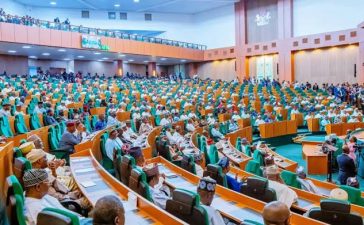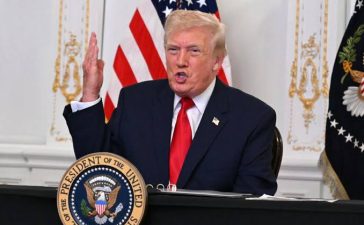A new 14% tariff imposed by US President Donald Trump on exports from Nigerian businesses poses a serious threat to the $10 billion in annual trade between the United States and Nigeria.
This move could disrupt Nigeria’s key sectors, particularly oil exports and agricultural trade, raising concerns about potential economic fallout, experts said on Thursday.
The tariff, which aims to correct what the Trump administration perceives as unfair trade practices, is expected to raise the prices of goods and services, affecting consumers on both sides of the Atlantic.
Nigerian experts warn that this policy will not only slow down manufacturing activities and international trade but also weaken the demand for Nigerian oil in the US – one of its largest markets.
Since the inception of the African Growth and Opportunity Act (AGOA) in 2000, Nigeria has exported an estimated $277 billion worth of goods to the United States, with crude oil making up the majority of this trade.
Nigeria’s annual exports to the US currently range between $10 billion and $12 billion, with petroleum products accounting for the bulk of the value.
Sheriff Balogun, President of the Nigerian-American Chamber of Commerce (NACCIMA), expressed concern over the new tariff’s potential to impact trade volumes significantly. He warned that crude oil, Nigeria’s primary export, could suffer as a result of the tariff.
Economic experts predict that Nigeria’s oil revenue will decline sharply due to reduced demand following the tariff enforcement, particularly in the face of global trade tensions.
Since oil represents a significant portion of Nigeria’s export earnings, any disruption in its sale to the US will strain the country’s economy further, exacerbating challenges like a weaker naira and rising inflation.
According to Afreximbank research, the reciprocal tariff could also lead to higher prices for other imports into Nigeria, including wheat, vehicles, and refined petroleum.
This could further increase local production costs, disrupt business operations, and hurt the purchasing power of Nigerian consumers.
In a broader context, the tariff hike is part of a more extensive initiative by the Trump administration to reshape global trade relations.
Trump has framed the move as a way to re-balance global trade and protect US industries, accusing countries like Nigeria of unfair trade practices and trade barriers.
However, experts fear that this shift will have far-reaching consequences, including inflationary pressures and disruptions in global supply chains.
Muda Yusuf, CEO of the Centre for Promotion of Private Enterprises, warned that Nigeria could see indirect consequences such as increased costs for imported goods, potentially leading to a rise in consumer prices.
The US-Nigeria trade relationship has been long-standing, with Nigeria serving as a crucial supplier of crude oil and other raw materials to the US.
However, the introduction of new tariffs threatens to diminish the benefits of initiatives like AGOA, which has allowed for duty-free access to the US market for Nigerian goods.
Trump’s new tariffs also mark a departure from decades of free trade, highlighting the growing protectionist stance of the US under his administration. In a speech, Trump declared the start of a new era of “fair trade,” aimed at ensuring the US economy benefits more from global trade.
While crude oil exports may remain exempt from the tariff, Johnson Chukwu, CEO of Cowry Asset Management Limited, pointed out that Nigeria’s non-oil exports, such as agricultural







